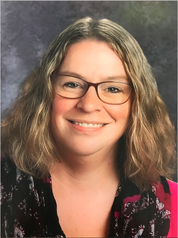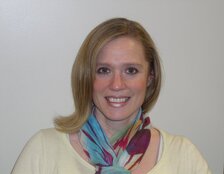BLOG POST BY PTAC MEMBER PAM GREGG Most people who know me today could not possibly imagine my student self, trying to be invisible in the classroom throughout my K-12 school career. I have trouble remembering that person myself. I can remember awesome teachers who tried to reach out to me, but when your condition is chemical and not situational, there was only so much they could do. My anxiety/depression was invisible. I suffered in silence. I didn’t learn coping skills until, when I was in college studying to become a teacher, I was forced to come out of my proverbial shell and perform. Where did I get my inspiration for my coping skills? From the students who have entered my classroom since the beginning of my career. And I have spent the last 30 years honing and refining these skills while acknowledging the fact that my students could be suffering from any type of invisible and silent condition as well. I have taught social/emotional learning courses at the graduate level so that teachers can embrace the concept of teaching the whole student, not just the curriculum. Sometimes, especially at the secondary level, it was a tough sell. The social/emotional piece to teaching is huge but often not emphasized as much as it should be. Let me share a situation that presented itself this past year in my 11th grade Level 1 Composition class. In this class are high level students who opted not to take an AP English class their junior year. I had previously taught middle school, and this year’s juniors I had possibly taught in 7th, 8th, and 9th grades. The rapport established early on was a great starting off point for my juniors. However, one of my juniors this year who is a highly gifted writer suffered in silence as we began to tackle the research paper process which consumes two months of the semester-long course. This student had mastered the art of looking busy. I had remembered her as being a perfectionist and a hard worker from having her in class before. I also knew that writing was one of her strengths. To read her writing reminded me of high-caliber writing at the university level. So, when I conferenced with her after the research portion of the project, I was shocked to discover that she had lots of sources and no note cards. She was easily a week behind her peers. She, of course, said she was fine and would catch up over winter break. Fast forward to January, no progress was made on the paper, and the final due date was looming. Here was this brilliant student with a ton of potential in danger of failing my course. She hadn’t started her paper because she had no outline. She hadn’t started her outline because she had no note cards. She was frozen in the process and helpless to find a solution. That’s where I stepped in. She was already in the habit of popping into my classroom at the end of the school day, so I wasn’t surprised when she showed up on my doorstep the day before the paper was due. What I wasn’t expecting was for her to be “fine” one moment and burst into tears the next. I sat with her and shared my own experience of suffering in silence. She agreed that she had indeed been suffering in silence but had no idea what to do about it. She was overwhelmed with things that were going on at home and not being able to keep up with schoolwork. I stressed the fact that she needed to take a step back, make a plan, and ask for help, none of which would be easy for her to do. That afternoon marked a turning point for her. Did she have to share everything that was going on in her life? No. She kept asking me, “What about my paper???” To which I responded, “Are you finished suffering in silence? Will you let me help you?” She agreed that she was and she would. I spent the next couple of minutes showing her how easy it was to do one note card electronically using NoodleTools. She looked me in the eye and said, “That’s it? It’s that easy??” We discussed that it could have been that easy all along and that by allowing herself to suffer in silence she was torturing herself unnecessarily. So, what is my point here? I now have a mantra that I repeat incessantly. “Don’t suffer in silence.” I share my past experiences in school. I also share situations where a student was frozen, feeling like it was impossible to succeed, and some strategies we worked on together to cope with what seemed to him/her to be an insurmountable situation. There was no one right answer, but by talking with each student, and backtracking to where they shut down and why, he/she was able to start to come up with a plan for success. We should not be afraid to pull from our own personal experiences to show our students that they are not alone. I am not a guidance counselor, nor would I ever try to “diagnose” my students, but I am an organized problem-solver (to a fault), and I never give up on my students, no matter how many brick walls they try to erect between me and them. We, as teachers, need to acknowledge the fact that that quiet kid in the back of the classroom, who may come across as an underachiever or someone who doesn’t care, needs to know that we are here to help with the roadblocks and that coping skills do exist for those who may suffer in silence.
2 Comments
Blog Post by PTAC Member Denise Williams Welcome back! I’m excited about the possibilities this year has in store. However, my optimism has required mindfulness and hard work. Teaching isn’t always rainbows and puppy dogs. Education can be a minefield with long hours, difficult parents, needy students, demanding bosses, and competitive coworkers. It’s easy to focus on the negative. Teaching is also incredibly fulfilling. Recently, I found myself anxious and focusing on the negative. My anxiety was so high that my physical health was adversely affected. I also found it extremely difficult to focus and to be creative. I wasn’t being the best teacher I could be. This had to stop. I owed it to my students, my family, and myself. Therefore, I sought out a therapist. This was one of the smartest things I’ve ever done. I learned to embrace uncertainty and to focus on the positive. One of the many resources that helped me is a book entitled, The Four Agreements by Don Miguel Ruiz. It is as my therapist put it, “A little woo, woo.” It is very spiritual, but the wisdom behind the four agreements is life changing. The Four Agreements is a practical guide to personal freedom by revealing the source of self-limiting behavior that steals joy and creates suffering. The Four Agreements are a code of conduct that transforms fear into freedom. The first agreement is to be impeccable with your word. We tell our students to tell the truth, and we need to as well. As Ruiz puts it, “Speak with integrity. Say only what you mean. Avoid using the word to speak against yourself or to gossip about others. Use the power of your word in the direction of truth and love.” If a child is told they are stupid, and their mind is fertile for this belief, then the child will formulate this agreement. This agreement will remain until someone captures the child’s attention and convinces them that they are in fact intelligent. The child can then form a new agreement, and as Ruiz puts it, “The whole spell is broken.” This year let’s do this for our students, our colleagues, and ourselves. The second agreement is to not take anything personally. As teachers we put so much of ourselves into instruction and our classrooms, so this is a tough one. Ruiz makes the point that what others do is not because of you, but because of themselves. It is their reality. Become immune to the opinions and actions of others, and you won’t be the victim of needless suffering. This is especially true when people are trying to send poison your way. If you accept it, their emotional garbage now becomes yours. Our students can also benefit from this agreement, especially when peers are being ugly toward them. The third agreement is to not make assumptions. Ruiz writes, “Find the courage to ask questions and express what you really want. Communicate with others as clearly as you can to avoid misunderstandings, sadness and drama.” I said in a recent podcast that I would be the worst reporter. I nod to be polite then stew in my own misunderstanding. I have vowed not to make assumptions and ask more questions. I started with my family this past Christmas. My initial interpretations were often incorrect. Asking questions, and learning the truth strengthened my relationships and limited misunderstandings. As educators we can model this with our students and colleagues. Think of yourself as a reporter or detective and have the courage to ask questions. Despite what Jack Nicholson’s character says in a Few Good Men, you can handle the truth. The fourth and final agreement is to always do your best. Keep in mind that your best is fluid. Your best will be better when you are well-rested and focused as opposed to when you are exhausted and distracted. Basically, don’t under-do it ,and here is the tough one for teachers, don’t over do it. Both take away from your best. Ruiz states, “That simply doing your best under any circumstance, you will avoid self-judgement, self-abuse and regret.” Be a wonderful role model and share this wisdom with underachieving and perfectionistic students and staff. Always do your best with the four agreements. You may not be impeccable with your word one day. Pick yourself up and start over the next. The same is true for the remaining agreements. By the way, always doing your best fits perfectly with promoting a growth mindset and grit. You got this! Be impeccable with your word, don’t take things personally, don’t make assumptions, and always do you best. Make these four agreements with yourself and encourage your students to do the same. Fear and anxiety will be transformed into freedom and happiness. I wish you the best on your mindful journey. Take care and have a wonderful school year. |
AuthorPennsylvania Teachers Advisory Committee Archives
March 2022
Categories |

 RSS Feed
RSS Feed